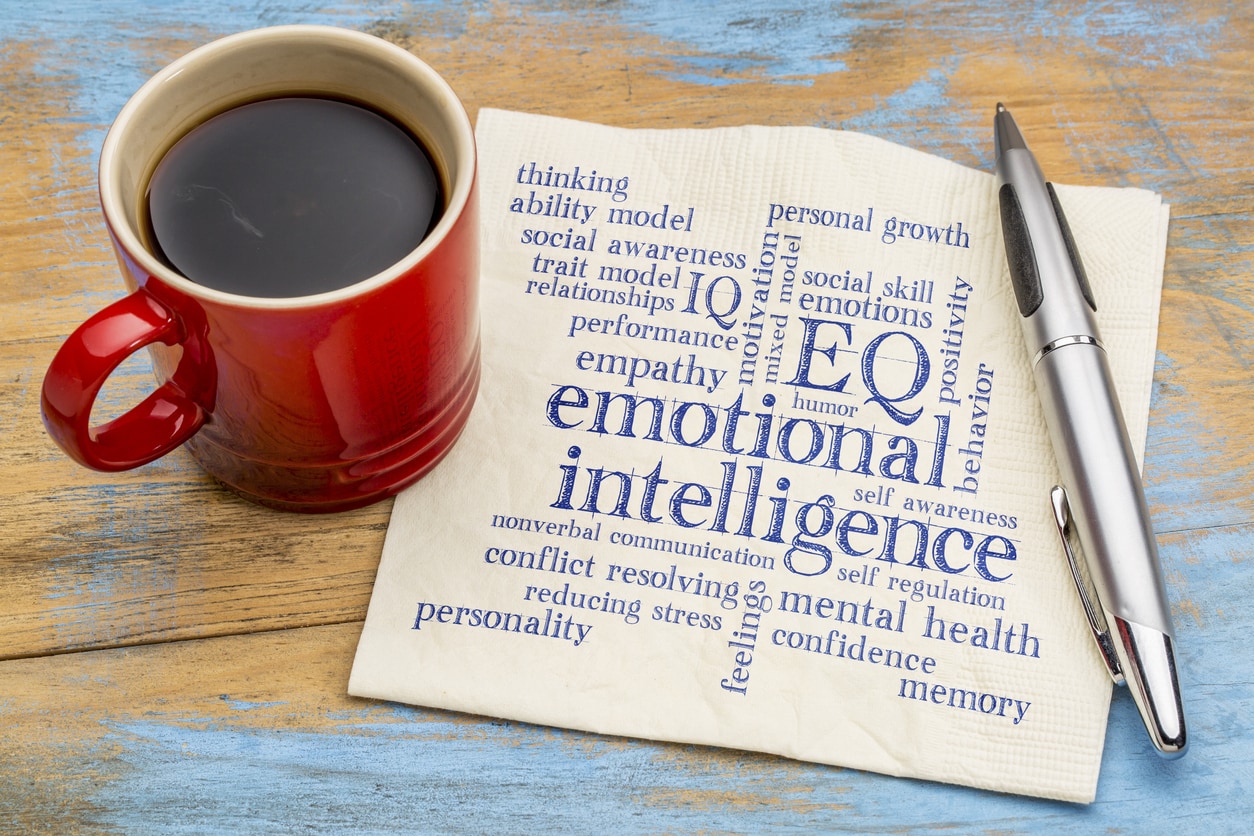Whether you are a CEO or an individual team member your emotional intelligence (EQ or EI) can have a tremendous impact on your professional success. Decades of research point to emotional intelligence as the critical factor that sets high performers apart from the rest. Not surprisingly, EQ is now rated among the most desirable soft skills by recruiters.
What is emotional intelligence?
Emotional intelligence is made up of four core skills – self-awareness, self-management, social awareness, and relationship management. Emotional intelligence, like IQ, exists in everyone. While your IQ is based on your knowledge and quantitative skills, your EQ is based on more intangible qualities that affect how you manage behavior, navigate social interactions and make decisions that achieve positive results.
Why is emotional intelligence important to your success?
Your ability to leverage your emotional intelligence helps fuel your performance, leadership and ultimate success in the workplace. It is an ingredient that ignites collaboration and cooperation among teams and contributes to a positive culture.
Simply put, your ability to stay aware of your emotions and manage your own behavior along with your ability to understand other people’s behavior and motives, are essential competencies to lead yourself and your team effectively toward achieving company goals.

How can I build my emotional intelligence skills?
It’s never too late to develop and enhance your emotional intelligence. Start with a quick assessment of your emotional intelligence. Then adopt these habits to build your emotional intelligence quotient.
- Focus Energy on Your Attention and Your Effort
People with high EQ do not worry about things they cannot control. Instead, they focus their energy on what is completely within their power. They aim their attention and efforts to find solutions. They stay calm under pressure, resolve conflict effectively, and tend to make more thoughtful decisions based on evidence and not emotion.
- Understand Your Emotions and Know How to Express Them
People with high EQs accurately define their emotions so they’re not misunderstood or lead to unsuitable actions. They don’t just say they feel “bad”. They pinpoint whether they feel anxious, frustrated, irritable or discouraged. By defining exactly how they feel, they figure out what caused the feeling and what to do about it. They take criticism well and keep emotions in check during tough discussions. They are self-confident, open-minded and keep negative self-talk at bay.
- Rely on Your Good Manners, Empathy and Kindness
People with high EQ establish boundaries and assert themselves without offending others. They are strong leaders and influencers because they care about people and outcomes. Emotionally intelligent people are great at motivating colleagues and neutralizing those with negative mindsets.
- Listen More, Talk Less
People with high EQ’s listen much more than they speak. In meetings they are just as conscious of team members’ body language as they are of the words spoken. By “reading the room” they take actions to keep the discussion on track and prevent a participant from dominating the meeting. If they are the new kid on the block, they recognize the importance of observing for a while to figure out the rules and the norms of the group.

Master your emotional intelligence and you will know how to recognize, read and respond appropriately to any workplace scenario. For more information on how to bolster your emotional intelligence check out these free online courses.
If you should ever find yourself unemployed or looking to change jobs or careers visit MassHire Cape and Islands Career Center. We are here to help.




